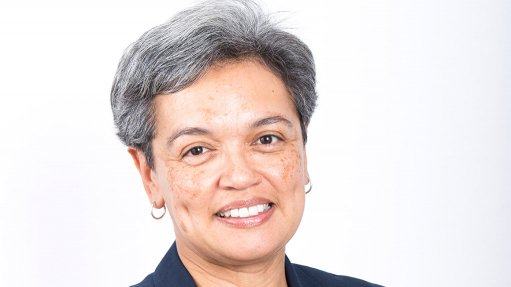
JANINE ESPIN EDS ensures that mines are legislatively compliant particularly in terms of the human resources component of the social and labour plan
The South African mining education and training sector is in a dire state, with not enough focus on adult basic education and the proper upskilling of mineworkers, states socioeconomic development facilitator Economic Development Solutions (EDS) MD Janine Espin.
“General large-scale intervention programmes are constantly implemented, but these programmes do not make any difference to the occupational level of people who need education and training. We want to see proper upskilling where there is management development programmes starting at supervisory level and enabling mineworkers to grow throughout the mining operation.”
Espin adds that some mines do have programmes to uplift workers to grow within different ranks of the organisation, but “we do not see a lot of mines doing it, we only see a lot of senior people in mines being either of one race, one gender or not even South African citizens”.
EDS wants to ensure that South African miners have enough skills to not only mine underground but manage the mine at all levels.
However, she states that traditional training should rather be changed to incorporate a different way of training, where there is true occupational development and true upskilling.
With mining companies having to potentially retrench workers, EDS facilitates training programmes to reskill and upskill workers – should they be retrenched – with different skills, to enable them to find employment after either retrenchment or mine closure.
She adds that a full programme on retrenchments or mine closure should include a plan regarding the training of miners and, usually this will include a ramp-up in normal training activities.
In providing these training programmes through incubator projects, entrepreneurship programmes which can lead to supplier development programmes, learnerships, internships and bursaries to mines, EDS partners with companies and various government departments.
“Where possible, we source-match funding to ensure that the training is sustainable, long term and can be broad-based to allow for a large number of people to participate in training initiatives,” Espin explains.
Together with skills development facilitators, EDS identifies suitable candidates, bursaries or learning institutions to place learners for training and facilitates agreements with the mines or companies accordingly.
“The development of learners is monitored and reported to the specific mine or company on a monthly or quarterly basis so that they know it is money well spent and have the benefit of guaranteed trained professionals when training is completed.”
Espin tells Mining Weekly that EDS ensures that mines, with which it currently works, are legislatively compliant, particularly in terms of the human resources component of the social and labour plan, to ensure that training initiatives are valid, proper and compliant.
Espin states that the imperative of educating mining communities is to uplift communities to break the cycle of poverty by becoming more skilled. “There is the individual benefit and the economic benefit, but also the socioeconomic benefit in the ability to show that people’s lives can change and there is a different way of life,” she concludes.